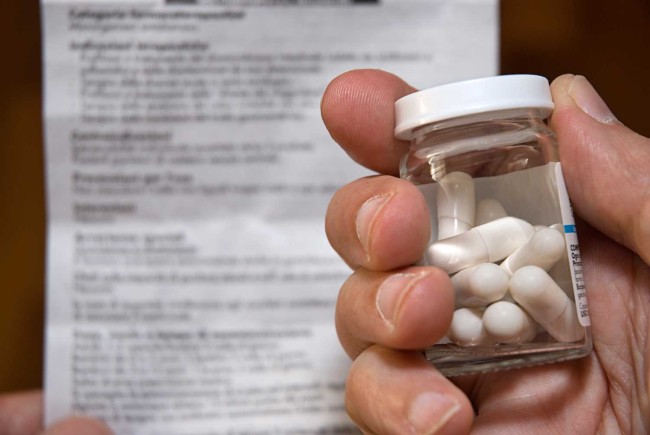Regulations to work as a pharmacy tech vary from state to state. Some may require pharmacy technician certification or licensure, while a few have no regulatory requirements at all.
Obtaining certification from a nationally recognized agency or organization can improve chances for employment regardless of the state of residence. In addition, it will prepare you for the possibility of a nation-wide certification requirement, which has been proposed by the National Association of Boards of Pharmacy (NABP).
National Pharmacy Technician Certification
There are two primary organizations that provide pharmacy tech certification; the Pharmacy Technician Certification Board (PTCB) and the National Healthcareer Association (NHA). Both are certified by the National Commission for Certifying Agencies (NCCA) and are recognized in all 50 states. They both administer pharmacy technician exams that grant certification, as well as recertification exams to maintain a CPhT status.
For requirements specific to your area, contact your state’s Board of Pharmacy.
Pharmacy Technician Certification Board (PTCB)
The Pharmacy Technician Certification Board is a nationally recognized agency offering certification to pharmacy technicians, and the designation CPhT to those who pass their exams. The PTCB was founded in 1995, and is accredited by The National Commission for Certifying Agencies (NCCA). As stated on their website, the “PTCB develops, maintains, promotes, and administers a nationally accredited certification and recertification program for pharmacy technicians to enable the most effective support of pharmacists to advance patient safety”.
Candidates apply to sit for the exam online, for an application fee of $129.00 (fee current as of March, 2013). Upon approval of the application, the candidate will then be asked to schedule the exam. Exams are given in person, and are administered by Pearson VUE, and the test must be taken within 90 days of approval. There are 235 testing centers nationwide, and can be scheduled online or by calling Pearson VUE at (866) 902-0593.

To achieve PTCB Certification, candidates must satisfy the following eligibility requirements:
| Requirements to sit for the PTCB | |
|---|---|
| 1) | High school diploma or equivalent educational diploma (e.g., a GED or foreign diploma) |
| 2) | Full disclosure of all criminal and State Board of Pharmacy registration or licensure actions |
| 3) | Compliance with all applicable PTCB Certification policies |
| 4) | Passing score on the Pharmacy Technician Certification Exam (PTCE) |
A candidate may be disqualified for PTCB Certification upon the disclosure or discovery of:
• Criminal conduct involving the candidate;
• State Board of Pharmacy registration or licensure action involving the candidate;
• Violation of a PTCB Certification policy, including but not limited to the Code of Conduct.
Licensure, Registration, & Certification Requirements By State
| State | State License Required? | Registration Required? | PTCB Certification Required? | State Board of Pharmacy |
|---|---|---|---|---|
| Alabama | ✔ | ALBOP | ||
| Alaska | ✔ | ✔ | AKBOP | |
| Arizona | ✔ | ✔ | ✔ | ASBOP |
| Arkansas | ✔ | ARBOP | ||
| California | ✔ | ✔ | ✔ | CSBOP |
| Colorado | CDORA | |||
| Connecticut | ✔ | ✔ | ✔ | DCP |
| Delaware | DBOP | |||
| Florida | ✔ | FBOP | ||
| Georgia | ✔ | ✔ | GBP | |
| Hawaii | DCCA | |||
| Idaho | ✔ | ✔ | ✔ | IBOP |
| Illinois | ✔ | ✔ | IDFPR | |
| Indiana | ✔ | ✔ | ✔ | INBOP |
| Iowa | ✔ | ✔ | ✔ | IBOP |
| Kansas | ✔ | KBOP | ||
| Kentucky | ✔ | KYBOP | ||
| Louisiana | ✔ | ✔ | LABP | |
| Maine | ✔ | ✔ | MPFR | |
| Maryland | ✔ | ✔ | MBOP | |
| Massachusetts | ✔ | ✔ | EOHHS | |
| Michigan | LARA | |||
| Minnesota | ✔ | ✔ | MNBOP | |
| Mississippi | ✔ | ✔ | MBP | |
| Missouri | ✔ | ✔ | MBOP | |
| Montana | ✔ | ✔ | ✔ | MDL&I |
| Nebraska | ✔ | NDHHS | ||
| Nevada | ✔ | NVBOP | ||
| New Hampshire | ✔ | OPLC.BOP | ||
| New Jersey | ✔ | NJDCA | ||
| New Mexico | ✔ | ✔ | NMBOP | |
| New York | NYSED | |||
| North Carolina | ✔ | NCBOP | ||
| North Dakota | ✔ | ✔ | NDBOP | |
| Ohio | ✔ | ✔ | OBOP | |
| Oklahoma | ✔ | ✔ | OSBOP | |
| Oregon | ✔ | ✔ | ✔ | ORBOP |
| Pennsylvania | PABOP | |||
| Rhode Island | ✔ | ✔ | ✔ | RIDOH |
| South Carolina | ✔ | ✔ | SCBOP | |
| South Dakota | ✔ | SDBOP | ||
| Tennessee | ✔ | TNDOH | ||
| Texas | ✔ | ✔ | ✔ | TSBOP |
| Utah | ✔ | ✔ | ✔ | UTDOPL |
| Vermont | ✔ | VSOS | ||
| Virginia | ✔ | VBOP | ||
| Washington | ✔ | ✔ | ✔ | WDOH |
| West Virginia | ✔ | ✔ | WVBOP | |
| Wisconsin | WI.DSPS | |||
| Wyoming | ✔ | ✔ | ✔ | WSBOP |
More information on the PTCB can be found on their website, PTCB.org.
National Healthcareer Association (NHA)
Founded in 1989, the National Healthcareer Association is the country’s largest health career certification provider, and administers certification exams for 10 Allied Health Professions, as well as continuing education and recertification. Like the PTCB, they are accredited by The National Commission for Certifying Agencies (NCCA), and are recognized in all 50 states. The NHA refers to their certification as the Exam for the Certification of Pharmacy Technicians (ExCPT), and those who pass their exams are given the credential CPhT. Their program was started by the Institute for the Certification of Pharmacy Technicians (ICPT), which is now part of the NHA.
Candidates for NHA certification will apply online, create an account with the NHA, and, if the qualifications are met, will schedule the test at one of over 600 testing centers in the U.S. The fee to sit for the exam is $105 (current as of March, 2013). Testing results will be available online within 24-48 hours of completion of the exam. Certification is valid for 2 years, and recertification can be obtained by the NHA.
To be eligible to take the ExCPT certification exam for pharmacy technicians, a candidate must:
| Requirements to sit for ExCPT | |
|---|---|
| 1) | Be at least 18 years of age |
| 2) | Have high school diploma or equivalent required |
| 3) | Have successfully completed a training program or one year of work experience within the field |
More information the NHA can be found on their website, NHANOW.com.
Benefits of Accreditation
Having professional pharmacy technician certification demonstrates that you have proven knowledge and experience in the field of pharmacology. As you search for jobs, you will automatically have a competitive edge over those who are not certified. In some cases, your accreditation can be a useful tool in negotiating a better salary.
The U.S. Bureau of Labor Statistics states (BLS) adds, “Some states and employers require pharmacy technicians to have certification. Even where it is not required, certification may make it easier to get a job. Many employers will pay for their pharmacy technicians to take the certification exam”. Be prepared, and research pharmacy tech programs with eventual certification in mind.

